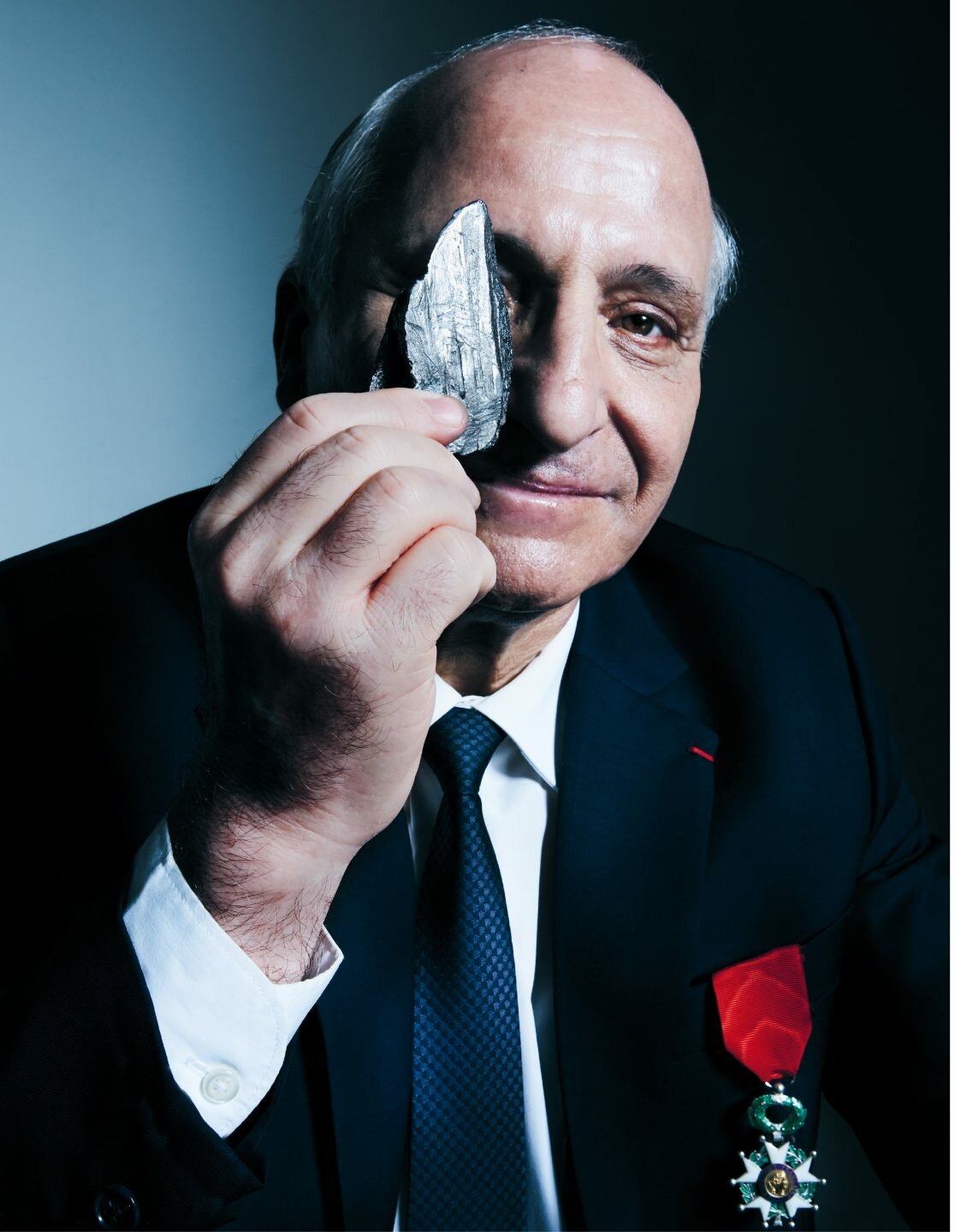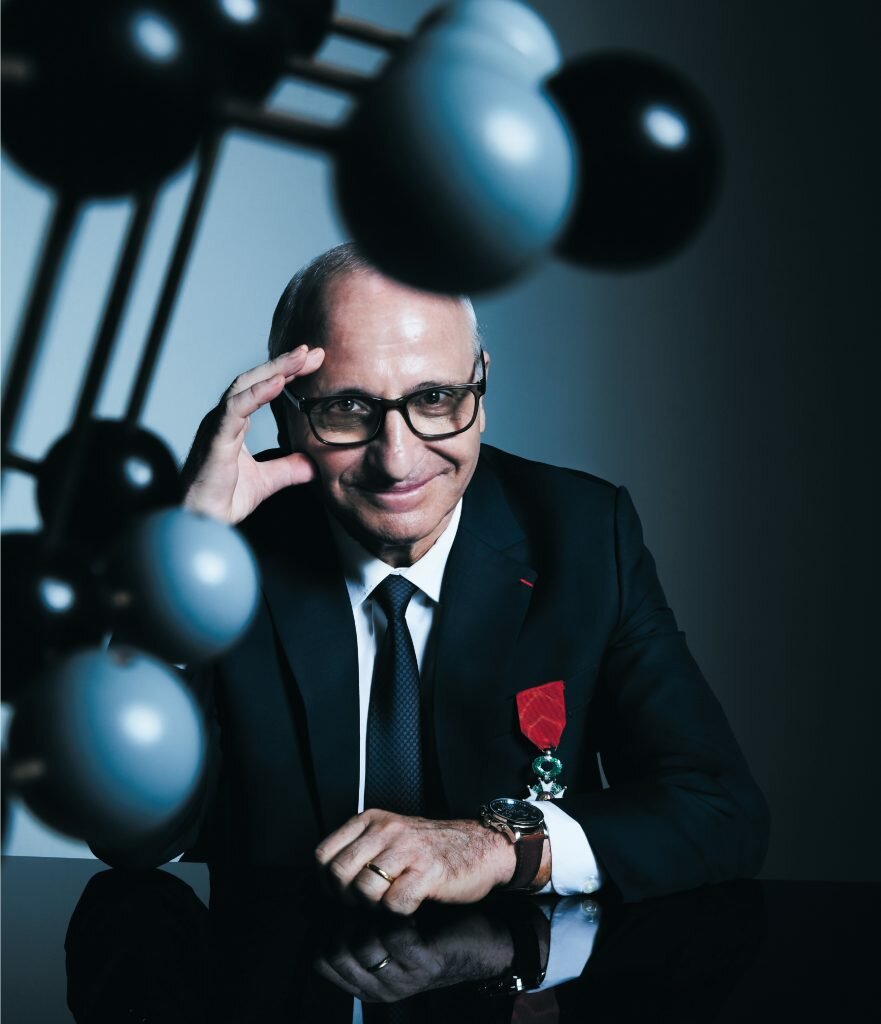As one of the founding fathers of rechargeable batteries, Professor Rachid Yazami should be a billionaire and a Nobel Prize winner. Incredibly, he’s neither, although he narrowly missed out on both. The Singapore-based professor dedicated a career spanning four decades to the development of lithium-ion batteries that are now ubiquitous in phones, laptops, and electric cars.
Yazami invented the graphite anode that is a vital component in today’s rechargeable lithium-ion batteries. The French-Moroccan came up with the invention back in 1980 as a research student working in France. Since then he has been behind more than 150 patents relating to battery technology and founded six start-up companies across the US and Singapore.
Most people will know graphite as it is used in pencils. But Yazami discovered that graphite is also an excellent material for batteries as its multi-layers provide reservoirs for lithium to be stored safely.
From its humble beginnings, the rechargeable battery has now become an essential object in our daily lives, even if it’s hidden inside our phones and consoles. Indeed the industry has grown rapidly as we buy more and more devices, and is projected to reach US$41.6 billion (S$56.78 billion) by 2027. Yazami, himself, should be a billionaire by now given his vital role in the development of lithium-ion power sources. But the patent he filed when he invented the graphite electrode as a research student was originally rejected.
While the professor does have his suspicions about the motives behind the patent rejection (it was later granted to the firm funding his research), he’s never been bitter about the billions he could now be worth. “That’s life. Sometimes an invention can be too early and people are not ready for it yet,” he casually says.
He is, however, hoping to have more luck with a fluoride-based battery he has developed, and for which he does own the patent. Japan’s Toyota, the world’s biggest car company in terms of sales, has started experimenting with fluoride batteries in some of its vehicles. This could be the payday the professor deserves.
This patent was filed in the US back in 2007, proving Yazami’s point that some inventions can be too early. “It takes a long time for new inventions to be adopted by the battery industry. But when you don’t believe in it, you miss the opportunities.”
Honours and decorations
It’s a similar story for the Nobel Prize for chemistry, which many people feel should have been awarded to the “crazy professor in Singapore”, as he refers to himself. Last year, three other scientists were given the prestigious award for their contributions to rechargeable batteries. The Nobel Foundation only allows a maximum of three people per award. If it included four, Yazami feels he would have been on the list.
“[The Nobel Prize organisers] never mentioned me, although 98 percent of batteries contain the graphite anode I invented.” One of the three recipients was John Goodenough, a 98-year-old scientist. “I think age played a part. Maybe my time will come in 30 years’ time,” Yazami jokes. But he was awarded the Draper Prize, considered the Nobel Prize for engineers, for his work in the rechargeable battery field in 2014.
In fact, Yazami has received many scientific awards from organisations spanning Nasa to Nato. In 2014, he was decorated with the Medal of Intellectual Competency by the King of Morocco, and was the recipient of the French Legion of Honour in 2016. He also has a theorem named after him and is the author of more than 250 papers in peer-reviewed journals and book chapters.
His four decades of experience started at France’s Grenoble Institute of Technology, where he earned both his undergraduate degree and doctorate. From 2000 to 2010, he was the visiting Associate in Engineering and in Chemistry at the prestigious California Institute of Technology (Caltech). During his time in Singapore — he moved here in 2010 — Yazami has held a number of positions at Nanyang Technological University.
Inventing a key component of the modern-day electric battery wasn’t nearly enough for him. Yazami has also discovered other battery upgrades, which give them longer lifespans and improved performance. One of these innovations is a third electrode (lithium- ion batteries only have two). “I refer to it as a chicken with three legs. By having this third electrode, the battery can be restored to up to 95 percent of its original capacity.”
This third electrode invention took place in 2015 but so far hasn’t been taken up by any battery makers in the notoriously slow and conservative industry. “When I discovered the graphite electrode in 1980, it took 11 years before it was introduced into batteries. Things don’t move fast. When you think [Alessandro] Volta originally discovered the battery in the 1800s with two electrodes, things haven’t moved on much from there.”
Smart-chipped and super-charged
His latest invention is a superchip which can tell how healthy a battery is and if it is safe for use. This venture sees the professor in a new role as the founding director of local start-up KVI. A superchip basically gives a battery a brain so it can communicate with the charger to tell it when it’s fully charged and what speed to charge at.
Most chargers don’t fully charge a battery to 100 percent even if the device claims so. “A battery may say its fully charged to 100 percent but that’s not the case. It stops charging once you reach a certain voltage,” says Yazami, who estimates a “fully charged” battery may actually only be 75 percent charged.
The smart chip is attached to a rechargeable battery and will measure voltage and temperature. This allows it to be charged faster at a higher voltage, while avoiding overheating. Such an invention is sure to be popular in our busy and hectic lives where we demand quicker recharging of phones and devices.
Such superchips already exist, says Yazami, but they aren’t common and not all are as accurate as his. “It also means artificial intelligence (AI) can be used to control the battery, while the life can be improved as it’s being fully charged.” His technology is considered environmentally friendly as fewer batteries would need to be made and disposed of.
A battery with a smart chip could fully recharge an electric vehicle within 20 minutes, claims Yazami. Some car brands say this is currently possible but the professor says these are not fully charging, only partially. “If you fast- charge a battery repeatedly but aren’t doing it to 100 percent every time, its capacity will be reduced as it has a memory.”
Another type of machine with high demand for quick-charging batteries are drones. They are being increasingly used in logistics (by e-commerce companies like Amazon) and are carrying heavier loads which drain the battery faster. “The quicker they can be recharged, the more drones can be used for military, delivering goods, and across a range of sectors. Electric helicopters are another area that could become more popular if batteries can be recharged quickly,” Yazami explains.
Capital city
Yazami is in the midst of raising $1 billion to get his third electrode concept to market, and is in talks with investors as far afield as the US, Europe and the Middle East. Ideally he wants to set up the company in Singapore but feels investors here are more cautious and prefer to invest at a later stage of a start-up’s life.
It is something that has been on his mind since he first came to Singapore a decade ago. He had envisioned setting up a manufacturing plant (similar to the Tesla Gigafactory that Elon Musk built in Shanghai), but struggled to find investors for such a large investment.
For his smart chip, he is looking for a smaller amount of capital, in the region of $50 million to $60 million, and hopes this can be raised locally.
With Yazami’s ideas — and he has lots of them — garnering interest from some of the world’s leading electronics manufacturers including Apple, Panasonic and Samsung, it is only a matter of time before his ultra-fast charging technologies get snapped up.
This story first appeared in the October 2020 issue of A Magazine.

